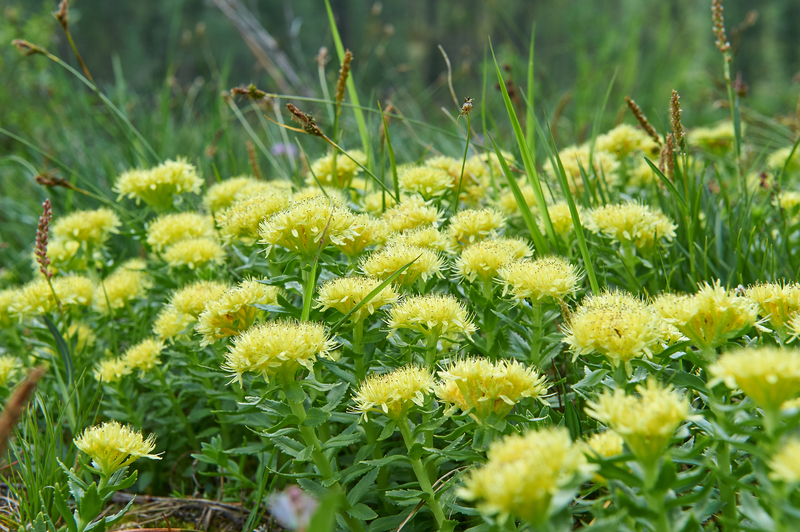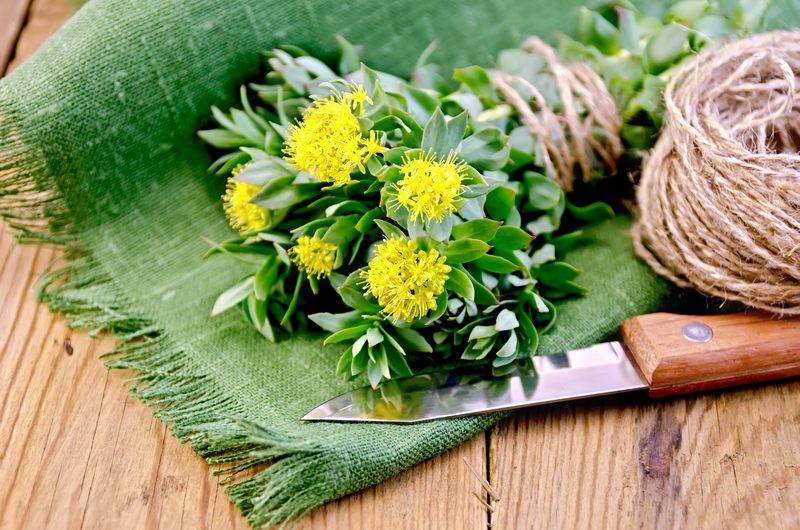What is Rhodiola Rosea?
 Rhodiola Rosea is known by its scientific name, Rhodiola crenulate. It also goes by nicknames, Golden Root or Arctic Root. It is typically used as an adaptogen, antidepressant, anti-inflammatory, cognitive enhancer, and energy booster. Although Rhodiola has likely been around for thousands of years, it was first found in scientific literature in the early 1700s. Although it was not found directly mentioned in literature before the 1700s, it is believed that Dioscorides utilized the plant as a medicinal herb in Ancient Greece, calling it “Rhodia Riza.” It was extremely popular amongst the Viking culture, who used the herb to improve mental performance and physical endurance. Purportedly, this would help them achieve more successful raids and expeditions.
Rhodiola Rosea is known by its scientific name, Rhodiola crenulate. It also goes by nicknames, Golden Root or Arctic Root. It is typically used as an adaptogen, antidepressant, anti-inflammatory, cognitive enhancer, and energy booster. Although Rhodiola has likely been around for thousands of years, it was first found in scientific literature in the early 1700s. Although it was not found directly mentioned in literature before the 1700s, it is believed that Dioscorides utilized the plant as a medicinal herb in Ancient Greece, calling it “Rhodia Riza.” It was extremely popular amongst the Viking culture, who used the herb to improve mental performance and physical endurance. Purportedly, this would help them achieve more successful raids and expeditions.
Rhodiola was proudly mentioned in the Swedish Pharmacopeia (first edition). The plant grows in colder, mountainous regions of Asia and Europe. The roots hold the adaptogenic properties, decreasing stress and anxiety when consumed. Ancient China supposedly used an herbal tea brewed from Rhodiola to treat the common cold and flu. And the Siberians believed that the root held the power to a longer life, brewing a concoction of the plant themselves. They also used Rhodiola to improve fertility and encourage the health of newborns.
What are the Active Constituents of Rhodiola Rosea?
Rhodiola’s primary, active constituents include phenylpropanoids (e.g. rosavins), salidroside, flavonoids, monoterpenes (rosiridin), and triterpenes. These active constituents are responsible for its many effects, and for it being classified as a natural stimulant.
Benefits and Effects of Rhodiola Rosea
Rhodiola Rosea offers many benefits to the body and mind. The below list includes some of the many natural benefits found in its active constituents:
- Cognitive enhancing benefits (including learning and memory)
- Increase to blood flow and overall circulation
- Increases energy
- Increases stamina
- Decreases fatigue
- Improves athletic performance & workouts
- Decrease stress, with adaptogenic effects
- Resists the effect of developing stress
- Reduces anxiety
- Anti-inflammatory
- Anti-depressant
- Improvements to mood
Some other purported uses include managing diabetes and anticancer properties. All that said, Rhodiola is a pretty incredible plant, hence its nickname “Golden Root.”
How Long Will Rhodiola Rosea Stay in the System?
Rhodiola Rosea will typically metabolize and begin working in the system within 30 minutes of consumption. It will work its magic in the average human body for roughly 4 to 6 hours. The action takes place within the body’s stress system, also known as the sympatho-adrenal-system (or SAS). The herb works by providing rapid response to stressors and maintaining an optimum balance of serotonin, dopamine, and norepinephrine neurotransmitters.
Recent studies indicate that the pharmacokinetics, excretion, and tissue distribution of certain active constituents found within Rhodiola (specifically salidroside) will begin to decline in the plasma rather quickly. The half-life of this active constitutent was found to be about 1 hour. While other portions of the plant may have a slightly longer half lifes, this means as the plant begins to metabolize, it is almost immediately seeing a decline in concentration. One of the more lengthy half-lives in terms of active constituents is found in rosavins, which appear to remain in the system for up to 10 and a half hours.
Regardless, Rhodiola will typically begin working within 30 minutes and feel like it has worn off after no more than six hours.
Does the Body Get Used to Rhodiola Rosea?
 Rhodiola Rosea has been proven to build tolerance within the body. The best effects are typically found within the first week of consumption. For this reason, it is common that nootropic stacks or supplements containing Rhodiola Rosea will be rotated every other week to maintain the maximum benefits of the herb. Fortunately, even small doses will produce large effects in the body, which is why many premium nootropic supplements will not include larger doses of Rhodiola in their formula. It could be suggested that there is a “sweet spot” which makes Rhodiola a bit more effective over a longer course of regimen, even indefinitely.
Rhodiola Rosea has been proven to build tolerance within the body. The best effects are typically found within the first week of consumption. For this reason, it is common that nootropic stacks or supplements containing Rhodiola Rosea will be rotated every other week to maintain the maximum benefits of the herb. Fortunately, even small doses will produce large effects in the body, which is why many premium nootropic supplements will not include larger doses of Rhodiola in their formula. It could be suggested that there is a “sweet spot” which makes Rhodiola a bit more effective over a longer course of regimen, even indefinitely.
The decrease in effects usually applies to Rhodiola’s energy and stamina producing properties, as some studies have shown long-term use of the plant will continue to improve mood and offer adaptogenic effects. It has been shown that longer term use of Rhodiola may continue to contribute to cognitive enhancement. In fact, many recent studies indicate that regular use of Rhodiola can improve overall learning and memory. Additionally, as an anti-depressant, it is likely that the greatest benefits will be seen over the course of a longer, regular regimen. This make sense, as it modifies the balance of neurotransmitters responsible for depression and overall mood.
Rhodiola Rosea as a Nootropic
In terms of nootropic benefits, Rhodiola has a lot to offer a nootropic stack. It is a natural cognitive enhancer. It offers a plethora of energy to both body and mind. It improves stamina, helping one think and problem solve for longer durations of time, faster. It has adaptogenic properties, which promote the better functioning of the mind and body by reducing unnecessary stress and thwarting off new stress. For these reasons, Rhodiola is often found in a variety of nootropic stacks and supplements.
Rhodiola Rosea is found in our Pirate Blast supplement for its ability to promote and enhance natural blood flow and energy in the body.
Final Words About Rhodiola Rosea
While there are many uses for Rhodiola Rosea, it is most commonly found in supplements with improve stamina, energy, libido, and athletic performance. It is very popular amongst athletes and bodybuilders. It is also used for its ability to improve erectile dysfunction. In fact, many recent studies have proven that the herb has the ability to substantially improve sexual function in men with ED or who suffer from premature ejaculation. The stamina and energy-boosting properties of Rhodiola make it helpful from even a cognitive perspective. Overall, there are many reasons to include Rhodiola in many nootropic stacks, which is why it has found its way into a variety of nootropic supplements. And it has sure earned its nickname the “Golden Root” for many of these reasons.
Disclaimer: Although Rhodiola Rosea is generally accepted as safe for consumption within daily values, it is always best to contact your physician before adding any nootropic or supplement to your daily regimen.
